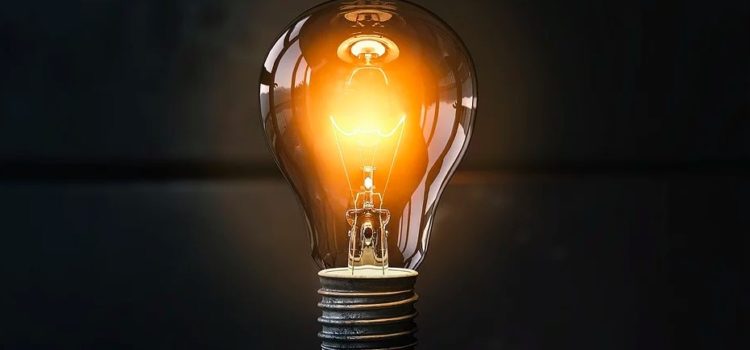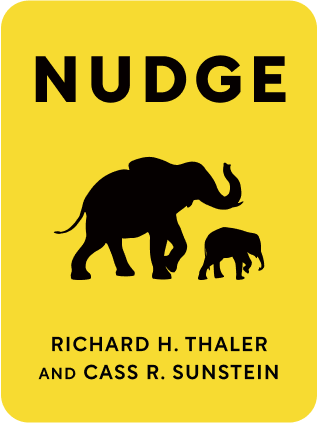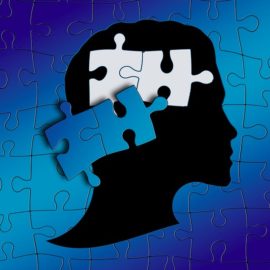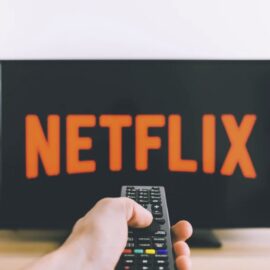

This article is an excerpt from the Shortform summary of "Nudge" by Richard H. Thaler and Cass R. Sunstein. Shortform has the world's best summaries of books you should be reading.
Like this article? Sign up for a free trial here .
What is Nudge theory? How does the Nudge theory book explain how the theory can be applied to your life?
Nudge theory is about helping people make better choices. What is Nudge theory based on? The idea that people should have free choice, but that the choices can be presented in a way that encourages better outcomes.
Read on to understand what is Nudge theory and learn how to apply it to your life.
What Is Nudge Theory About?
In Nudge, behavioral economist and Nobel laureate Richard Thaler and legal scholar Cass Sunstein explain how and why we make the choices we do—and how the people and institutions offering the choices can lead us to better decisions without infringing on our freedom to choose.
Humans vs. Econs
In much of the research into human decision-making, humans are treated as “Econs”—fantastical beings with incredible powers of perception and self-awareness who infallibly make the best decisions for themselves. Of course, as anyone who’s bought a lemon from a used car dealer or taken out a mortgage with surprise fees can tell you, humans are more than capable of making bad choices. What is Nudge theory offering as a solution to this issue?
This is where behavioral economics holds an advantage over traditional economics: It treats humans like “Humans”—occasionally irrational beings prone to mistakes, especially when choices are rare, complex, and/or lacking in feedback mechanisms.
What is Nudge theory saying about people’s choices? When a Human makes a bad decision, it’s often the result of one or some combination of the following:
The Automatic System Overpowering the Reflective System
Psychologists have determined that we engage with the world through two systems: the Automatic, which is intuitive, instinctual, and immediate; and the Reflective, which is rational, deliberative, and delayed. Certain decisions—choosing the appropriate risk allocation for your 401(k), for example—require the Reflective System, but we all too often “go with our gut,” meaning we rely on our intuition rather than cold, cool thinking.
Use of Heuristics
Heuristics are, essentially, rules of thumb; and while they can often aid us in making decisions, they can also lead us astray.
A particularly dangerous heuristic, identified by the behaviorial economists Daniel Kahneman and Amos Tversky, is the “representativeness” heuristic. When we make decisions based on “representativeness,” we take either a stereotype of something or its past condition as an indication of its future. For example, if the stock market is booming, we might rush to invest, forgetting that the market is prone to fluctuations.
Loss Aversion, Inertia, and Status Quo Bias
Numerous studies have shown that humans are more afraid of suffering a loss than happy about realizing a gain, a habit of thinking that freezes us in our current situation (the status quo). A classic example is how workers decide on the allocation of their 401(k)s. Most workers will either set their allocation once and forget about it, or they’ll opt for the default, even when these allocations aren’t suitable for their age and retirement goals.
Temptation and/or Mindlessness
To understand temptation, we must recognize that we vacillate between “hot” and “cold” states. When we’re in a “hot” state—for example, when we’re thirsty—we’re highly susceptible to certain stimuli (for example, a soda vending machine). When we’re in a “cold” state—for example, well hydrated from our reusable water bottle—we’re less susceptible to those stimuli. A temptation is something we consume more of when we’re in a hot state.
Temptation often strikes us in relation to food, as does mindlessness. When we’re performing an action “mindlessly,” we’re acting on autopilot, without thinking. Studies have shown that the more popcorn people are given—even if the popcorn is stale!—the more they’ll eat, simply because consuming popcorn is such a routine action. What is Nudge theory saying we can do about this? Limit opportunities for temptation and mindlessness to lead you astray.
Social Influence
What is Nudge theory saying about the influence of other people? Whereas an Econ only takes into account the choices in front of him or her, without considering what other Econs are doing, a Human is heavily influenced by his or her peers. Studies on music tastes, for example, have shown that a song’s popularity is self-perpetuating—in other words, its popularity has more to do with social approval than any intrinsic musical factor.

———End of Preview———
Like what you just read? Read the rest of the world's best summary of Richard H. Thaler and Cass R. Sunstein's "Nudge" at Shortform .
Here's what you'll find in our full Nudge summary :
- Why subtle changes, like switching the order of two choices, can dramatically change your response
- How to increase the organ donation rate by over 50% through one simple change
- The best way for society to balance individual freedom with social welfare






